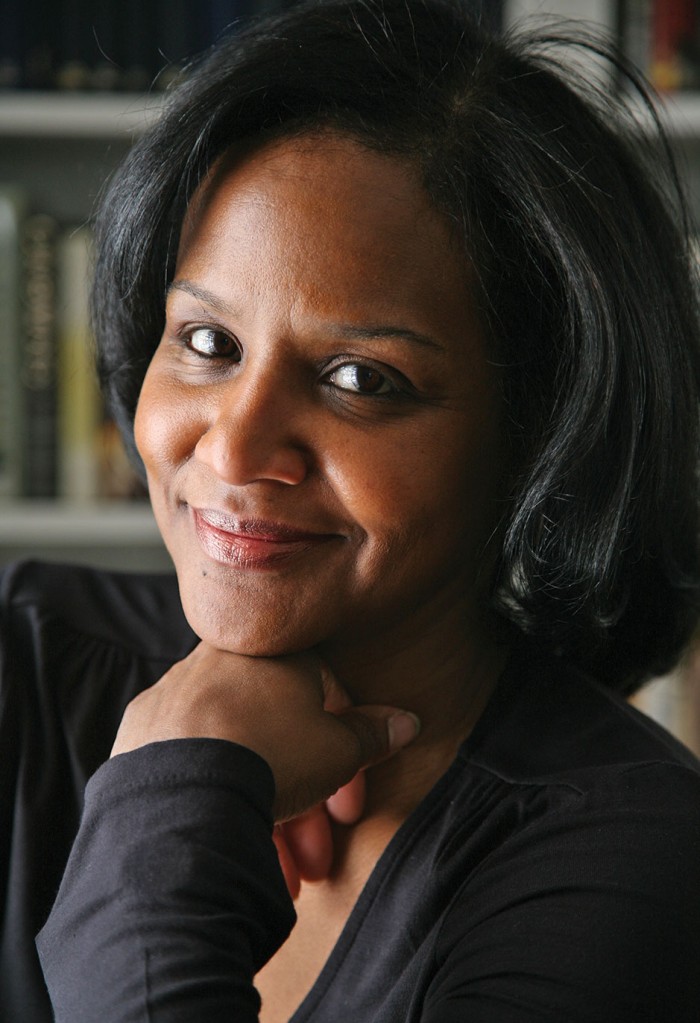Carol Espy-Wilson, SM ’81, EE ’84, PhD ’87
Carol Espy-Wilson, the first African-American woman to earn a PhD in electrical engineering at MIT, is both an academic and an entrepreneur. A professor of electrical and computer engineering at the University of Maryland and a member of its Institute for Systems Research, she does research that integrates engineering, linguistics, and speech science. She’s also founder and CEO of OmniSpeech, which improves voice clarity on cell phones and other communication devices in noisy environments.
Espy-Wilson grew up in Atlanta, earned her undergraduate degree at Stanford, and interned at Bell Labs. After MIT, she taught at Boston University and then, in 2001, made the move to UMD College Park. UMD’s Venture Accelerator program urged her into entrepreneurship in 2009. “I was not thinking about starting a company,” she says.
OmniSpeech targets emerging markets that rely on inexpensive phones with poor sound filtering. “We use the unique characteristics of speech to extract it from the noisy signal, even if the noise is dynamic—like music, or people talking in the background,” Espy-Wilson explains. “I’m really excited about the potential to improve all kinds of communication devices, including wearables, push-to-talk radios, and hearing aids.”

MIT’s Speech Communication Group shaped Espy-Wilson’s approach. “It was such a unique group—engineers, linguists, phoneticians, and psycholinguists. We even had a dentist who conducted research into speech motor control,” she says. “I attribute the speech enhancement algorithm we developed at OmniSpeech to that holistic background.”
Espy-Wilson’s husband, John Silvanus Wilson, worked in development at MIT for 16 years, and the two were housemasters at MacGregor House. He is now president of Morehouse College in Atlanta. “We have a commuting marriage,” she says. “We both want each other to realize our dreams, so that makes it a lot easier to do this.” They have 26-year-old twin daughters and a 20-year-old son.
A Radcliffe fellowship brought Espy-Wilson back to Cambridge in 2008, when she also served as a Residential Scholar at Simmons Hall. And this past April, she delivered the keynote address at the Black Alumni of MIT graduation celebration: “I talked to them about finding their passion and purpose, trusting that, as the Bible says, ‘If God be for us, who can be against us,’ so that they will be courageous and take risks—and the need for them to lift as they climb.”
Keep Reading
Most Popular
Large language models can do jaw-dropping things. But nobody knows exactly why.
And that's a problem. Figuring it out is one of the biggest scientific puzzles of our time and a crucial step towards controlling more powerful future models.
The problem with plug-in hybrids? Their drivers.
Plug-in hybrids are often sold as a transition to EVs, but new data from Europe shows we’re still underestimating the emissions they produce.
Google DeepMind’s new generative model makes Super Mario–like games from scratch
Genie learns how to control games by watching hours and hours of video. It could help train next-gen robots too.
How scientists traced a mysterious covid case back to six toilets
When wastewater surveillance turns into a hunt for a single infected individual, the ethics get tricky.
Stay connected
Get the latest updates from
MIT Technology Review
Discover special offers, top stories, upcoming events, and more.